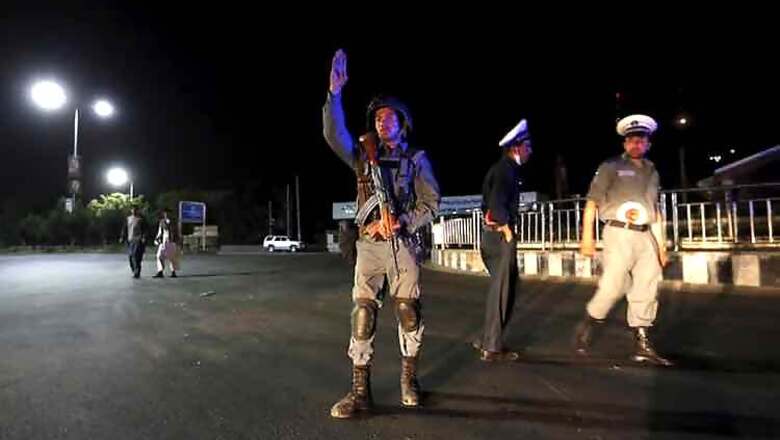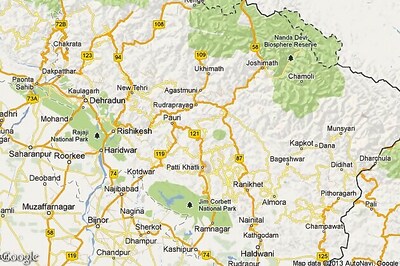
views
Kabul: Eight more fatalities were confirmed on Saturday from a barrage of bombings in Kabul, taking the toll to 44 in the deadliest day in the Afghan capital since the NATO combat mission ended in December.
The explosions, which devastated buildings and overwhelmed hospitals with hundreds of casualties, on Friday were the first major militant assaults on Kabul since the announcement of Taliban leader Mullah Omar's death.
In the first attack, a powerful truck bomb tore through the centre of Kabul just after midnight Saturday, killing 15 civilians and wounding 240 others.
The Taliban distanced themselves from the bombing which struck near a Kabul military base -- as they usually do in attacks that result in a large number of civilian casualties.
Less than 24 hours later, at least 20 people were killed when a suicide attacker dressed in police uniform blew himself up at the entrance of Kabul Police Academy.
The Taliban were quick to claim responsibility for that attack, which marked a serious breach of security at a premier training institute for Afghan security forces. Explosions and gunfire also erupted when Camp Integrity, a US special forces base in Kabul, came under attack on late Friday, killing nine people.
"One Resolute Support (NATO) service member and eight Resolute Support contracted civilians were killed," a NATO statement said without revealing their nationalities.
Military jets were heard flying over the centre of Kabul shortly after the Camp Integrity explosions. The carnage underscored the volatile security situation in Afghanistan amid a faltering peace process with the Taliban as Afghan forces face their first summer fighting season without full NATO support.
The bombings were the first major attacks after Mullah Akhtar Mansour was last week named as the new Taliban chief in an acrimonious power transition after the insurgents confirmed the death of longtime leader Mullah Omar.
Experts say the escalating violence demonstrates Mullah Mansour's attempt to boost his image among Taliban cadres and drive attention away from internal divisions over his leadership.
"The new wave of attacks is a tactic by the Taliban's new leadership to show they are capable, potent and operational," said security analyst Abdul Hadi Khaled.
"The demise of Mullah Omar divided the movement and affected the morale of their ground fighters. Hitting Kabul with a wave of powerful attacks is a way of showcasing their strength."




















Comments
0 comment